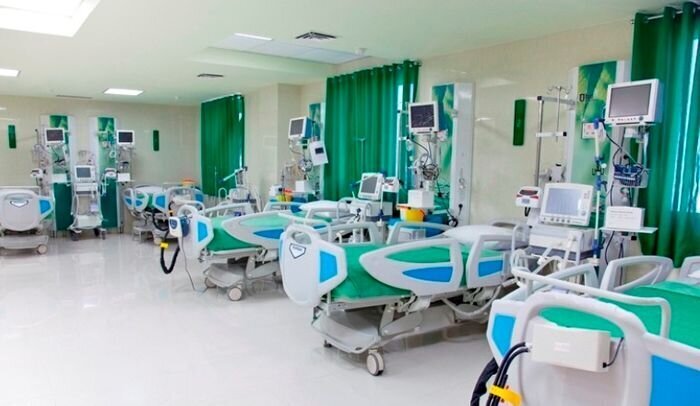Minister highlights enhanced ties on health with Finland

TEHRAN - Health Minister Bahram Einollahi has emphasized the need for boosting relations with Finland in the fields related to health.
In a meeting with Masoumeh Abad, the country’s new ambassador to Finland, Einollahi said by sending expert teams and forming specialized working groups, the two countries can identify areas of cooperation and use each other's experiences, ISNA reported.
Boosting scientific and academic relations and exchanging of professors and students in the fields of medicine and medical equipment can be strengthened between Iran and Finland, the minister stressed.
“Also, thanks to the lower prices of health products in Iran, Finnish companies can launch joint production lines with the Iranian private sector.”
Currently, there is good educational cooperation between Iranian and Finnish universities, the envoy said for her part.
Cooperation between Iran and Finland in the field of health, knowledge-based companies, and new technologies can be strengthened to deepen relations in other fields, she added.
On July 1, Einollahi said health diplomacy is one of the areas that are able to deepen relations between countries in the region.
There are many common issues for cooperation in the field of health between countries, he said, adding that the government's strategy is to strengthen foreign policy, especially with neighboring countries, IRNA reported.
He made the remarks in a meeting with Mehdi Sobhani, the Iranian ambassador to Amenia.
Einollahi urged Sobhani to form a joint working group with Armenia to broaden the fields of cooperation in the fields of medical education, treatment, medicine, equipment, and holding joint international scientific conferences.
Facilitating the situation for Armenian people to receive medical services in Iran can be on the agenda of the two countries, the health minister stressed.
Einollahi said in April that many countries in the region are asking Iran for help with issues related to health.
In May, Iran hosted the 26th G5 High-Level Experts Meeting on Health Cooperation and the 1st Healthcare Leadership and Governance Training Program.
G5 countries (Afghanistan, Iran, Iraq, Pakistan, plus the World Health Organization) have taken part in the meeting with the theme of “Joint Work for Solving Joint Health Problems.”
Addressing the opening ceremony, Einollahi referred to the unity and cooperation of the countries in the fields of health, treatment, and medical education as a historical necessity.
Achieving, maintaining, and promoting health is never possible in a regional way and does not happen in an isolated region, but requires the cooperation of countries, especially neighboring countries, he stressed.
“To develop health in the countries of the group of five, we must look at health collectively and think about creating and promoting health in all countries.
Iran initiated the establishment of the G5 in 2005 to promote subregional cooperation in health to provide technical support in improving this collaboration.
In June 2021, Ahmed al-Mandhari, the World Health Organization director for Eastern Mediterranean Region, said the Islamic Republic of Iran is a role model for primary health care.
For the past four decades, its PHC network has aimed to ensure that people have timely access to affordable, accessible, and acceptable essential health services, he explained.
In October 2021, World Health Organization (WHO) representative to Iran Jaffar Hussain, said that Iran's health system can be a model for other countries in the region, especially in the field of health and the use of valuable forces such as healthcare providers.
The national budget bill for the current Iranian calendar year 1402, which started on March 21, has increased the health sector’s budget by 29 percent compared to the current year’s budget.
MG
